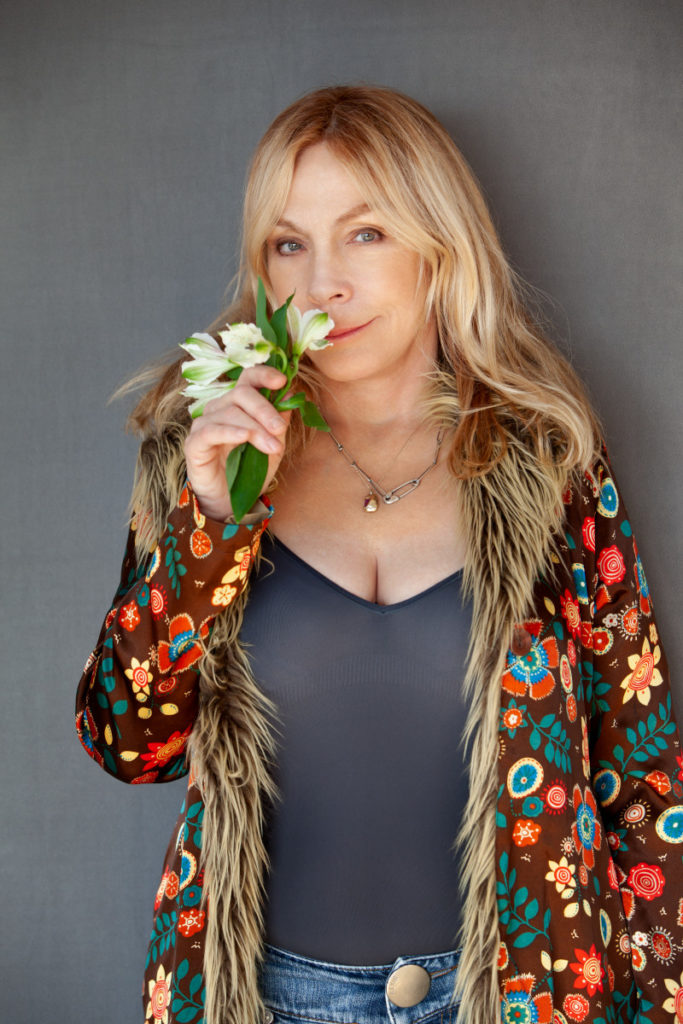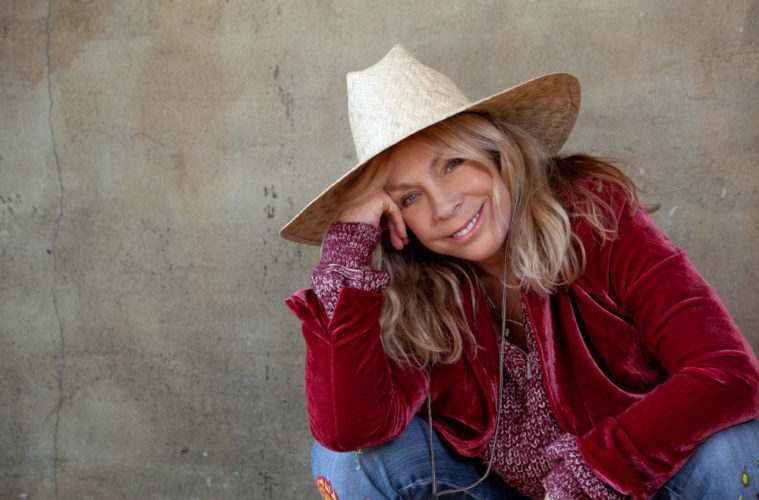Two-time Grammy Award-winning singer-songwriter Rickie Lee Jones, who has been dubbed the Duchess of Coolsville and an America troubadour, will bring her eclectic, jazz-informed trio to the Shalin Liu Performance Center in Rockport on March 5.
Prior to the pandemic, Jones brought her unique, melodic voice to the North Shore several times, performing to sell-out audiences at The Cabot in Beverly and the Blue Ocean Music Hall in Salisbury. She’s also performed at Shalin Liu in the past. “That’s the place that’s all wood and overlooks the ocean, right?” she asked during our recent conversation over Zoom.
Four-and-a-half decades of performing have brought Jones to stages all over the world. Her eponymous first album, particularly the single “Chuck E.’s in Love,” made her an FM radio staple. Additional tracks on this collection, released in 1979 and reaching number three on the US charts (and number one in Australia), have become standards in her intimate performances, including “Young Blood,” “Weasel and the White Boys Cool,” and “The Last Chance Texaco,” the latter lending its name to her autobiography released by Grove Press last year.
The albums that followed ventured into numerous genres, from the techno Ghostyhead (1997), to the eclectic, grunge-influenced The Sermon on Exposition Boulevard (2007), to three collections of pop and jazz covers. I would be remiss if I did not highlight 1989’s Flying Cowboys, produced by the late Walter Becker of Steely Dan fame, as one of the best albums from the last thirty years.

This mix of styles within Jones’ oeuvre is part of her musical DNA. Her father, Richard, was a singer/songwriter, and his father, Frank “Peg Leg” Jones, and mother, Myrtle Lee, were vaudeville performers in Chicago. But it is as much nurture as it is nature, Jones says. “People who love music are attracted to a diverse sound,” she says. “It could be a personality like Hank Williams or the beautiful song I wrote about what it’s like to be lonely. It is easier for me to love music than to exclude [any type of] music, because it does not fit into the particular banner that I associate with.”
When Jones was signed, and her debut record hit radio stations and the charts, marketing representatives and critics alike tried to pigeonhole her. But Jones pushed the boundaries, and produced music as varied as it is poetic.
These days, Jones makes her home in New Orleans, a place known for its historic, musical culture. This city is like no other city,” she said. “I live two blocks from a grade school church where kids come to study trumpet, trombone, horn, and form marching bands up and down the street. The kids are there winter and summer working till eight or nine o’clock at night. When you see that, you realize that this music is part of the soul of these people.”
When asked “what’s next” for Rickie Lee Jones, her response showed that the 67-year-old shows no signs of slowing down. The stories in her memoir are just the beginning of “the narrative that needs to keep going,” she says. Additional tales will be part of a television show that she is working on and possibly a stage production. She is also returning to her roots to make another jazz album with Russ Titelman, who produced her first two albums as well as 1995’s Naked Songs: Live and Acoustic.
In the liner noted to Naked Songs, Jones mentions that Bob Dylan once called her a poet. A burning question I’ve had for years is, “What was more of an honor: winning two Grammys or having Dylan refer to you as a poet?” Jones laughs and asks, “What do you think?”
Rickie Lee Jones is an American treasure. She stands in a pantheon of female vocalists who provided shape and texture to the soundtrack of our lives. Her voice, with its simple yet wonderous, strange intervals, was influenced by the pioneers who came before her. She tips her metaphorical hat (she no longer dons her raspberry-beret) to Billie Holiday, Mahalia Jackson, Ella Fitzgerald, and especially Nina Simone.
A handful of tickets remain for the show. Visit the Shalin Liu website to purchase.

